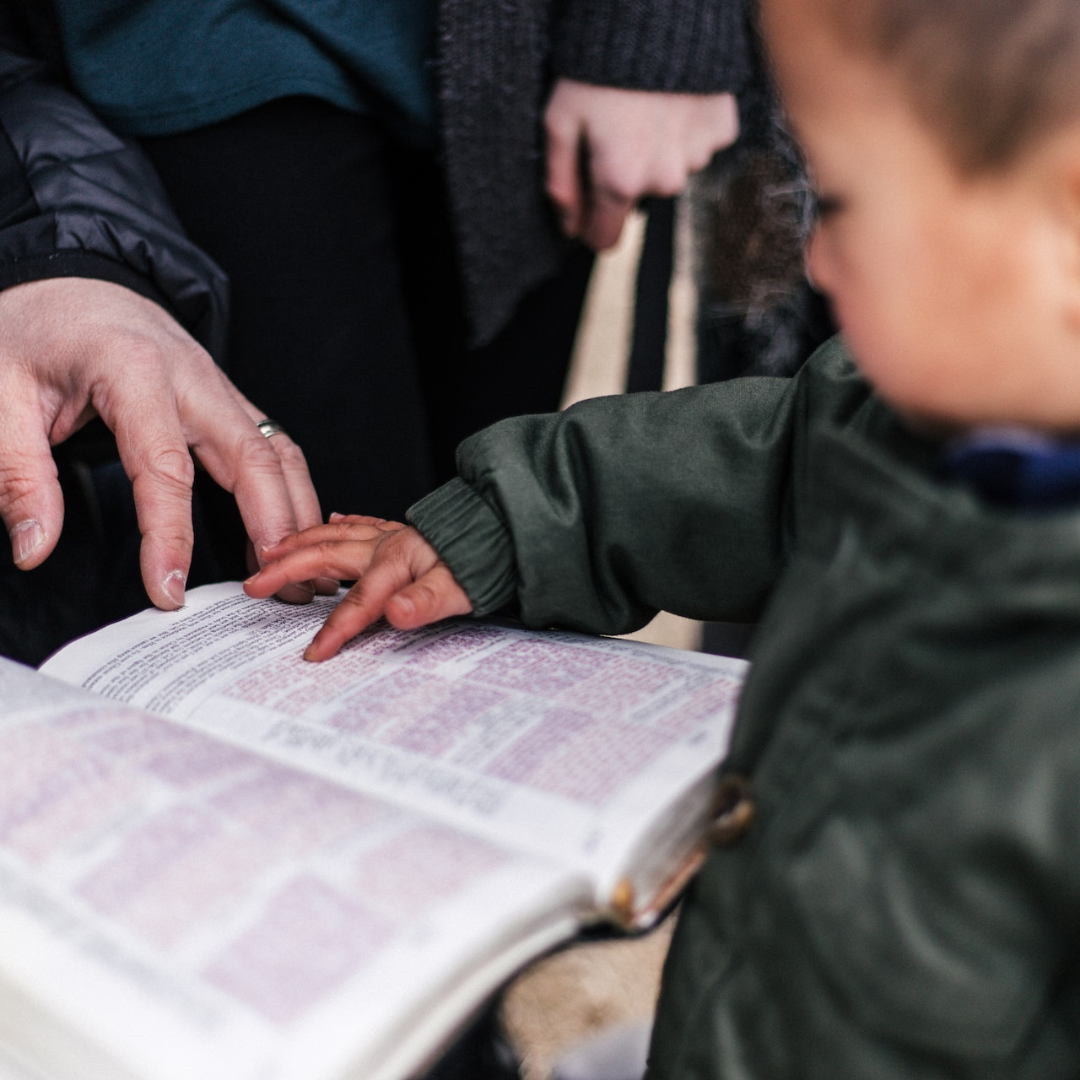By Pastor Stephen Hess –
Whenever we baptize an infant at Highview, I always remind the congregation that it isn’t only the parents who are taking responsibility for raising the child in the faith; it is the entire congregation. That is why one of the baptismal questions asked of the congregation is: “Do you, the members of this congregation, acting for yourselves and on behalf of the whole Body of Christ, assume responsibility with these parents for the spiritual nurture of this child?” This question is a reminder that raising up the next generation of disciples involves the entire Christian community.
When viewed from this perspective, the body of Christ is not divided between those who are parents and those who aren’t. We are all parents, but our parenting can take different forms. In fact, the Bible recognizes at least three types of parents. At any given point in our adult lives, we will find ourselves in one or more of these categories.
First, there are immediate parents. This is the most obvious category and is what we usually think of when we hear the word “parents.” Immediate parents are those who have biological, adopted, or foster children and are the primary caregivers for those children. Scripture says that these parents have a responsibility to provide for their children and raise them in the faith. Paul says in Ephesians, “Fathers, do not provoke your children to anger, but bring them up in the discipline and instruction of the Lord” (Eph. 6:4). Children, in turn, have the responsibility to honor their father and mother (Ex. 20:12). One of the most basic ways we can honor God is by recognizing and honoring these parent-child relationships that he himself has established.
 Second, there are grandparents. Believers are called not only to exercise spiritual influence in the lives of their children but also their grandchildren. This is reflected in Moses’ instructions to the Israelites in Deuteronomy 4: “Only take care, and keep your soul diligently, lest you forget the things that your eyes have seen, and lest they depart from your heart all the days of your life. Make them known to your children and your children’s children” (Deut. 4:9). Grandparents can make an enormous impact in the lives of their grandchildren. It appears that this was the case in the life of Timothy, about whom Paul writes, “I am reminded of your sincere faith, a faith that dwelt first in your grandmother Lois and your mother Eunice and now, I am sure, dwells in you as well” (2 Tim. 1:5). Timothy’s grandmother is a reminder that grandparents today still have an important spiritual role to play in the lives of their grandchildren.
Second, there are grandparents. Believers are called not only to exercise spiritual influence in the lives of their children but also their grandchildren. This is reflected in Moses’ instructions to the Israelites in Deuteronomy 4: “Only take care, and keep your soul diligently, lest you forget the things that your eyes have seen, and lest they depart from your heart all the days of your life. Make them known to your children and your children’s children” (Deut. 4:9). Grandparents can make an enormous impact in the lives of their grandchildren. It appears that this was the case in the life of Timothy, about whom Paul writes, “I am reminded of your sincere faith, a faith that dwelt first in your grandmother Lois and your mother Eunice and now, I am sure, dwells in you as well” (2 Tim. 1:5). Timothy’s grandmother is a reminder that grandparents today still have an important spiritual role to play in the lives of their grandchildren.
Third, there are spiritual parents. It is interesting to note that even though the Apostle Paul never married or had children, he still spoke of himself as a parent. He said to the Corinthian Christians, “For though you have countless guides in Christ, you do not have many fathers. For I became your father in Christ Jesus through the gospel. I urge you, then, be imitators of me” (1 Cor. 4:15-16). Likewise, when he wrote his letters to Timothy and Titus, he addressed these young men as his “children in the faith” (1 Tim. 1:2; 2 Tim. 1:2; Tit. 1:4). Paul understood that even though he had no biological children, the men he was discipling were his spiritual children. In the same way, God calls all believers to play a role in spiritually parenting those who are younger in the faith. These are our sons and daughters in Christ.
What I hope you see from this overview is that everyone is a parent in the body of Christ. The only question is whether we are an immediate parent, a grandparent, a spiritual parent, or some combination of the three. Our parenting roles may take different forms, but our responsibility is the same. We are all called to “tell the coming generation the glorious deeds of the Lord, and his might, and the wonders that he has done” (Ps. 78:4).

